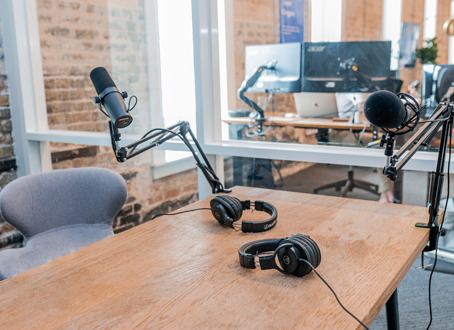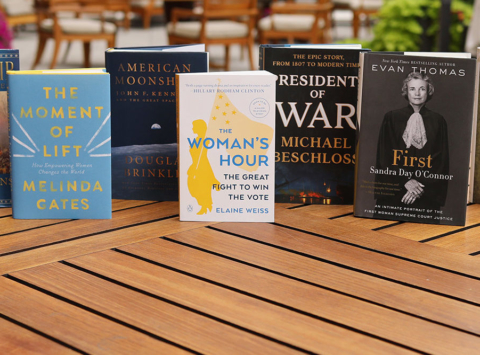Soon, the XXIII Olympic Winter Games will begin in PyeongChang, South Korea. From February 8th through the 25th, we’ll witness athletes come from across the globe to show their skills in 15 different sports. Full of competition and camaraderie, every two years, the Olympics become the culmination of hard work and sport, with eyes from all around the world watching to see which countries’ athletes hoist their home flags and bring home the gold.
But with each event I watch, year after year, I find myself extraordinarily impressed with the personal stories of fearlessness that I see in athletes from all over the world. They come from everywhere, from different backgrounds and stories, overcoming adversity in the hopes to live out their greatest dreams.
Take, for instance, the examples of fearlessness we see every day from Olympians, inside and outside of competition:
Kelly Clark
Veteran snowboarder Kelly Clark has already broken another record before she has even started to compete in PyeongChang. The 34-year-old has hit a milestone of being the first U.S. snowboarder to compete in five Olympic games. But the high of holding the title for the most decorated Olympic snowboarder coincided with the lowest point of her career, crashing at the 2015 X Games in Norway and having to recover from possible career-ending injuries.
It’s not unheard of for athletes to get injured once in a while. But that fall was different from all the others. She had torn her hamstring from the bone and tore the cartilage that kept her femur in her hip joint. That meant going through surgery for repair and then a year of recovery time, a kind of injury difficult for any person, let alone Kelly, the winningest athlete in snowboarding history.
She spent a month in bed with her feet bound together. She had to re-learn how to walk. Months off snow meant that she would have to come back and work harder than ever to make up for all that lost time. But for a determined individual like her—one who refused to let the injury define her career by ending it—the answer was as clear as ever: recover, train and compete not just to win, but to inspire others. As another Olympics loomed, Kelly felt a sense of urgency that helped conquer her fears of being defined by her injury rather than her skill.
By qualifying for the 2018 Olympics, she showed everyone around her what she is made of. Before, Kelly already made big bets and made history, but now in PyeongChang, it’s time to demonstrate how she’s evolved. These games will bring new tests as she goes up against athletes half her age, but Kelly stays motivated by keeping things in perspective and above all else, resolving to boldly keep progressing.
Akwasi Frimpong
The story of Akwasi Frompong begins in Ghana, where he was born. He, and his eight other siblings, were raised by his grandmother. His mother had gone to the Netherlands in order to find a better life for her family. At age eight, he followed her there, but with undocumented immigrant status. That status provided difficulties through the years, as Akwasi found trouble getting into schools as he grew older.
It was the Johan Cruyff Institute that took a chance on the young man. Akwasi was admitted into a program that allowed him to excel in academics and sport all at once. It was there that he began running, earning the name “GoldenSprint” and winning the award for International Student-Athlete of the Year.
But an achilles injury would put his competitive dreams on hold. His immigration status meant that Akwasi wouldn’t be able to find timely medical attention, and, unable to fully recover, the injury would keep him from running for almost three years.
Approached by the Dutch Olympic bobsled coach, Akwasi reached beyond his bubble and decided to take a chance at something brand new. Thirteen years after arriving in the Netherlands, he had become a naturalized citizen and could compete. Believing that the Olympics were a symbol of hope, he joined the team with Sochi 2014 in sight. However, he positioned as second alternate and barely missed the cut.
Unwilling to give up his Olympic aspirations, Akwasi was determined to fail forward, pivoting once again, this time training in skeleton. He founded the first Ghana Bobsled and Skeleton Foundation, and—turning 32 during the games this year—will compete in PyeongChang as the first ever skeleton athlete from Ghana in the Winter Olympics.
By constantly making big bets, Akwasi hopes to make history as the first person to win an Olympic gold medal for the country where he was born.
“What you need for success is already planted deep down inside of you. The root of your success starts in believing in yourself, then it is nurtured with a positive attitude, and then hard work and persistence will bring your success to reality.”
— Akwasi Frimpong
Mikaela Shiffrin
Mikaela Shiffrin has won three straight World Cup titles. The New Yorker called her the best slalom skier in the world. She’s the youngest woman in U.S. history to win a World Championship, and four years ago, she became the youngest person in history to win an Olympic gold in slalom at just 18 years of age.
Her age would tell you that she’s only at the start of her career, but with over 40 World Cup wins under her belt already, anyone can tell that she’s on her way to skyrocketing well beyond that. For context, phenom Lindsey Vonn only had seven career wins at the same age.
But like all of us, Mikaela has her share of challenges. Her achievements don’t come easy, and just weeks before the next Olympic games, she’s coming off of very public falls. As the opening ceremony for PyeongChang quickly approaches, Mikaela is bouncing back from late January failings, where she was unable to finish two World Cup races in a row, falling in one and missing a gate completely in another. For the successful athlete, it was the first time in six years that happened.
But like any fearless actor, Mikaela can make failure matter. With the heavy pressure of the Olympics looming, I’m hoping this bold athlete will fail forward, learning from these mistakes and using them as fuel to propel her Olympic dreams. Mikaela has been favored to win three medals this year, and I hope that she won’t let these recent speedbumps deter her from taking home the gold. And judging by what we see from her in this #BestofUs ad from Comcast NBC Universal, I have a feeling we’ll see big things from her:
https://youtu.be/LzgaqQFzYkI
These Olympians exemplify the Be Fearless principles the Case Foundation celebrates both in individuals and organizations everywhere. So, as you watch the 2018 Winter Olympic games, think about these athletes, and their fearless stories, as they continue to make big bets and make history, and hopefully provide some inspiration along the way.





